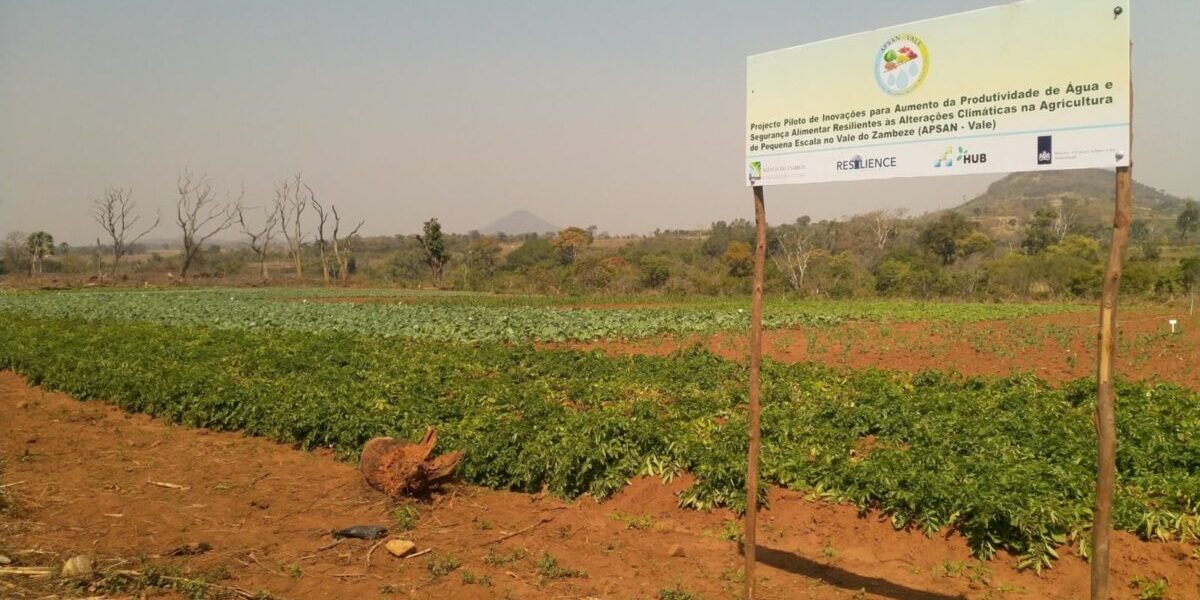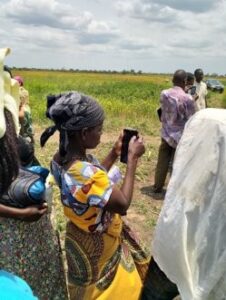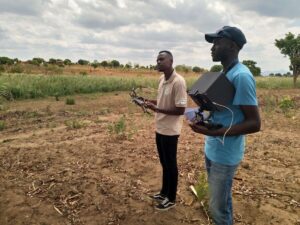APSAN-VALE project

SmartFarming has created a customized application and a two-way SMS platform to disseminate water productivity and food security innovations to horticulture farmers, thereby improving communication and knowledge exchange between extension officers and farmers. Additionally, an open-source and offline application was designed to gather data for monitoring and evaluating the project’s impact on farmers and other stakeholders participating in the initiative.
EMPOWERING APSAN-VALE PROJECT WITH WEB APP AND SUPPORTING IRIPO lda
The APSAN-Vale project aims to showcase an effective combination of adoption strategies, tailored service delivery, and technological packages, all aimed at empowering smallholder farmers with sustainable practices and information services. In the Zambezi Valley, the project identifies, validates, and implements a comprehensive set of complementary Technological Packages (TPs). These TPs encompass advancements in water and agronomical management practices, improved access to inputs and markets, and knowledge on nutrition and sanitation. Additionally, the project works on a roadmap to scale up the implementation of these sustainable TPs, in alignment with Dutch aid policy and national agricultural policy. Commissioned by the kingdom of the Netherlands, the project is implemented by HUB, Future water, and Resilience BV.
The primary objective of SmartFarming’s role in this project was to implement the IRIPO platform and develop a blended learning web-app. The goal was to deliver specialized information on good agricultural and irrigation practices, market updates, and weather forecasts to farmers via their mobile phones. Working in collaboration with the APSAN Vale team, SmartFarming utilized their expertise and available resources to craft the content of these messages.
The SMS messages covered a range of selected topics, including agricultural market prices, availability and pricing of inputs and products, and best agricultural practices. These messages aimed to deepen the knowledge previously acquired by farmers during training sessions and support their planning and adoption of practices to effectively achieve project objectives.
The significance of the IRIPO SMS service was especially evident during the COVID-19 restrictions, as it allowed technicians to remotely assist farmers and rapidly disseminate information. This service facilitated assistance to a larger number of farmers, surpassing what could be achieved through in-person visits alone. Monitoring the reception and proper utilization of these messages remained crucial for the project’s successful implementation.
Furthermore, the SMS service enabled technicians to reach a greater number of farmers in a shorter period, leading to more efficient and higher-quality assistance. This reduction in the workload for technicians also eliminated the need for frequent field visits.
Implemented in
Mozambique


